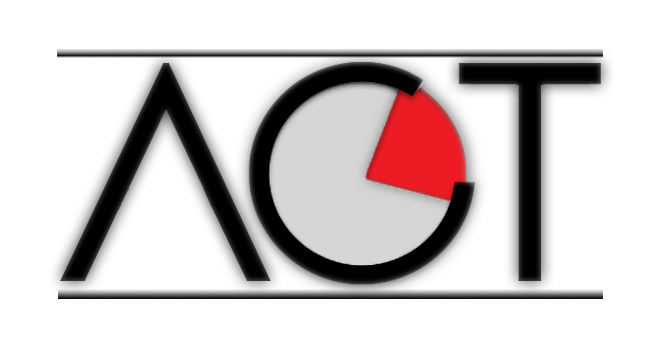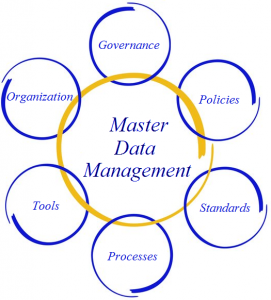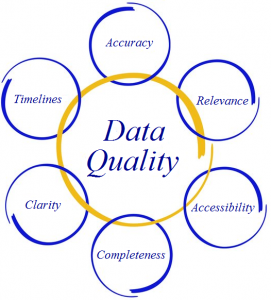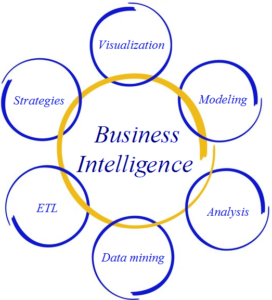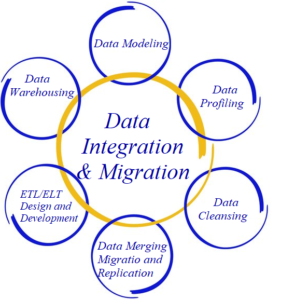May 22, 2018
milos.kotlar
Master Data Management
There are different understandings of Master Data depending on the perspective.
From the business perspective, master data management (MDM) is used to define and manage the critical data of an organization (customers, vendors, products, employees…) to provide a single point of reference or a single source of truth. Once propagated to transactional data (orders, account payables, employee records etc.) MDM provides framework for analytics and business intelligence.
From the IT perspective, master data management tools are used to support master data management by removing duplicates, standardizing data, and incorporating rules to eliminate incorrect data from entering the system in order to create an authoritative source of master data.
At its core MDM can be viewed as a "discipline for specialized quality improvement” (data quality perspective) defined by the compliance policies and procedures put in place by a data governance organization. The ultimate goal being to provide the end user community with a "trusted single version of the truth" from which to base decisions.
MDM has the objective of providing governance, organization, processes and tools for collecting, aggregating, matching, quality-assuring, persisting and distributing such data throughout an organization.
Regardless of the view you take to MDM we support your efforts to establish or improve your existing governance, organization, processes and tools.
Data quality refers to the condition of a set of values of qualitative or quantitative variables. There are many definitions of data quality but data is generally considered of high quality if it is "fit for [its] intended uses in operations, decision making and planning". Alternatively, data is deemed of high quality if it correctly represents the real-world construct to which it refers. Data completeness, correctness and consistency are some of the important topics.
Insufficient data quality can have immense consequences – such as not being able to properly analyze all the aspects of your own business, creating marketing, sales and customer service efforts based on incorrect information, or lowering customer confidence in your company. Data cleansing may be required to improve data quality.
Our approach to data quality, and ultimately to improving it, relies on the well-known control engineering principle “you cannot control what you cannot measure”. We start by defining data quality criteria and KPIs allowing monitoring and quantification of the data quality.
We offer over fifteen years of experience in this area, and understand the immense importance of holding your data to the highest standards of quality. Our services cover the entire process, from defining KPIs and setting benchmarks, developing monitoring tools and reports to day-to-day operations in correcting data quality issues.
Data quality management Talend based tool for SAP Migration
Automated tool for managing general data quality and advance data preparation and cleansing for achieving minimum requirements for migration
SAP R3 to SAP S4HANA was created by our team.
Talend environment chosen for DQM tool implementation based on customers requirements.
Talend is an ETL tool for Data Integration. It provides software solutions for data preparation, data quality, data integration, application integration, data management and big data. Talend has a separate product for all these solutions. Data integration and big data products are widely used.
We provided architectural level design and tracked and performed all operational requirments covering:
- SAP implementations
- Data contetn understanding
- Data cleansing monitoring and process improvement
- Completely create Talend tool that automate processes, connecting Talend tool and storing periodizes data in SQL Server and Qlik Sense Reporting for DQ Monitoring
Business Intelligence is an umbrella term that includes the applications, tools, and strategies that enable analyzing data and presenting actionable information to help executives, managers and other corporate end users make informed business decisions.
In the last decade, Business Intelligence and advanced data analytics has become one of our primary activities, especially in the context of data quality monitoring and costs optimizations.
We are covering the entire process starting with integration with data sources, data preparation and historization, to visualization using both out-of-the-box and custom-made solution.
Assisted integrations providing consulting services – helping understand content, helping detect important attributes based on customer needs.
Assisted integrations providing technical support.
May 22, 2018
milos.kotlar
